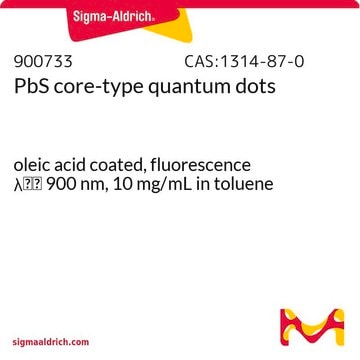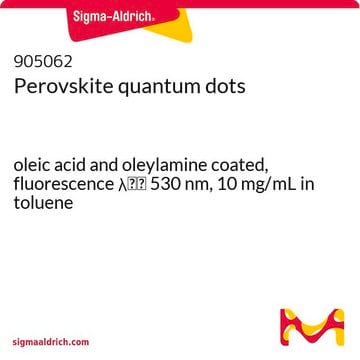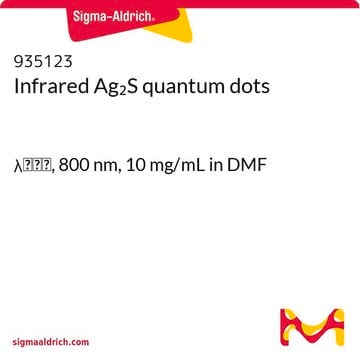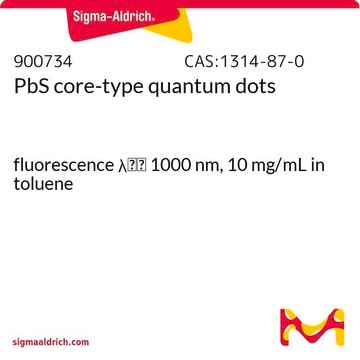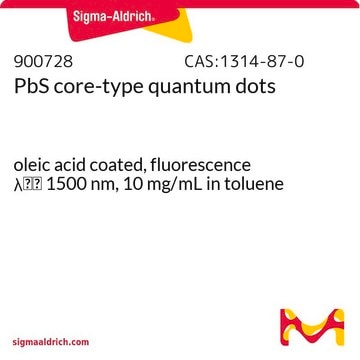900735
PbS core-type quantum dots
oleic acid coated, fluorescence λem 1100 nm, 10 mg/mL in toluene
Synonym(s):
Fluorescent nanocrystals, Lead sulfide, PbS QDs
About This Item
Recommended Products
Quality Level
form
liquid
concentration
10 mg/mL in toluene
fluorescence
λem 1100 nm
storage temp.
2-8°C
InChI
1S/Pb.H2S/h;1H2
InChI key
MIXDRAMRMDOQJH-UHFFFAOYSA-N
Looking for similar products? Visit Product Comparison Guide
Related Categories
Application
Signal Word
Danger
Hazard Statements
Precautionary Statements
Hazard Classifications
Aquatic Chronic 2 - Asp. Tox. 1 - Flam. Liq. 2 - Repr. 1A - Skin Irrit. 2 - STOT RE 2 - STOT RE 2 Inhalation - STOT SE 3
Target Organs
Central nervous system
Storage Class Code
3 - Flammable liquids
WGK
WGK 3
Flash Point(F)
46.4 °F - closed cup
Flash Point(C)
8 °C - closed cup
Certificates of Analysis (COA)
Search for Certificates of Analysis (COA) by entering the products Lot/Batch Number. Lot and Batch Numbers can be found on a product’s label following the words ‘Lot’ or ‘Batch’.
Already Own This Product?
Find documentation for the products that you have recently purchased in the Document Library.
Articles
In this article, the properties of some of the new non-cadmium based QDs along with different applications of QDs are summarized.
Professor Xiaohu Gao (University of Washington, USA) provides a overview of recent quantum dot (QD) advancements and their potential for advancing bioassay and bioimaging technologies.
Professor Sharma and colleagues review the synthesis and applications of this novel material. This includes a discussion of the unique properties of quantum dots and their suitability for solar cell applications, along with common synthesis techniques used to develop these materials.
Perovskite quantum dots research progresses overcoming challenges, enabling rapid development of light-emitting devices.
Our team of scientists has experience in all areas of research including Life Science, Material Science, Chemical Synthesis, Chromatography, Analytical and many others.
Contact Technical Service